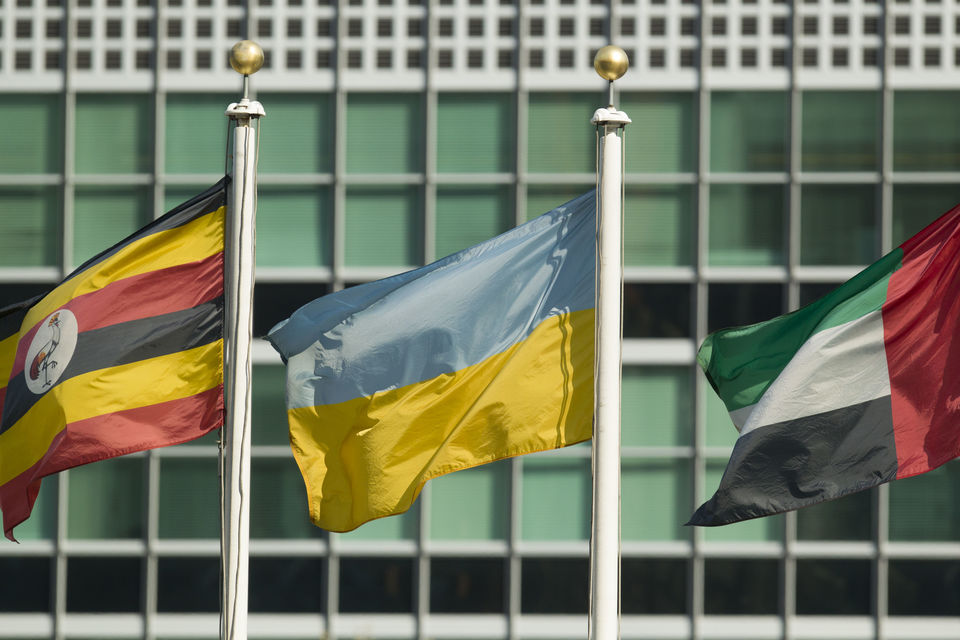Statement by the delegation of Ukraine before the 40th Session of the United Nations Committee on Information

Mr. Chairman,
At the outset, I would like to express our appreciation for your leadership and dedication to ensure that the Committee works smoothly and effectively.
My delegation also specially thanks Under-Secretary-General Alison Smale for an update on the activities of the Department of Public Information.
Mr. Chairman,
Ukraine welcomes the efforts of the DPI in ensuring that its news and media services maintain the highest standards of quality in delivering timely, accurate and balanced reporting on United Nations activities. In particular, I would like to refer to the new UN News web-sites in all six official languages, along with Portuguese and Kiswahili, which became user friendly, modern and public oriented sources of information.
My delegation is also pleased to note the focus on effective social media strategies enabling the UN to keep up with the latest trends in global information and to facilitate the work with various audiences, including youth and academia.
We also share the DPI’s view that while it is vital to continue expanding an outreach through the use of technology it is still relevant to maintain more traditional media, such as television, radio and print. Such a two-pronged approach allows the UN to reach a diverse set of audiences, including those without an access to the Internet, and to narrow the digital divide between developed and developing countries.
Mr. Chairman,
We cannot but emphasize the critical importance of free media for the development of democratic, pluralistic and prosperous societies.
Ukraine is fully dedicated to implementation of respective commitments and takes consistent steps to improve the environment for free media. I will highlight, in particular, the transformation of our country’s state radio and television companies into a public broadcaster, limiting state influence in the print sector through launching privatization of hundreds of print outlets, many of them regional and municipal newspapers, enactment of legislation on disclosure of identities of media owners. Additional legislative measures have been undertaken to strengthen the safety of journalists and remove impediments in their work.
In this light, we are pleased to note that according to the 2018 World Press Freedom Index, published by Reporters Without Borders, Ukraine’s steady progress in this field is recognized for a consecutive year. As the authors point out, “the Ukrainian authorities have adopted a number of long-awaited reforms since the 2014 revolution, including laws on media ownership transparency and access to state-held information”. This independent acknowledgement also serves as an incentive to continue focused efforts in enhancing the media freedom in my country.
Another important aspect of the mentioned index report is that the areas in the east of Ukraine, which are not under the control of the official government, are no-go areas for critical journalists or foreign observers. I would also add that the situation in the occupied Ukrainian peninsula – Crimea – is not any better and by many indicators can be assessed as even worse.
Russia, recognized as an occupying power by the General Assembly resolutions 71/205 and 72/190, launched systematic and massive abuses of fundamental human rights and freedoms in Crimea. Journalists and activists, who dare to report a view different from than the position of the occupation authorities, are systematically harassed, detained or interrogated.
Targeting Ukrainian journalists is a war tactic that Russia uses against my country. For one, we reiterate our condemnation of brutal persecution of a Ukrainian journalist – Roman Sushchenko –as he has been placed behind bars in 2016 in Moscow under fabricated charges. We demand from Russia Mr. Sushchenko’s immediate release.
More generally, we remain deeply concerned about a massive campaign of propaganda and incitement of hatred against Ukraine and Ukrainians, perpetrated by Russia’s state-owned media and public figures. This has already played a significant role in the occupation of Crimea and triggering the conflict in eastern Ukraine. While significantly reducing the space for independent and pluralistic media, the Russian authorities strengthened the grip over state-owned media transforming them into instruments of state-driven propaganda.
In this context, let me quote Madame Simonyan, the Editor-in-Chief of the Russian television news network Russia Today, who said in October 2011 the following, and I quote: “Not having broadcasting for abroad is like not having Ministry of Defence. When there is no war - you do not need it. But when the war kicks off - it matters. But you cannot create army one week before the war starts”. Needless to explain why more and more countries are considering now restricting or revoking national licenses from Russia Today. For these countries, this issue has become a matter of national security.
Mr. Chairman,
It is clear that such hybrid hostile practices involving state-controlled media is a direct threat to United Nations values. The Committee and other United Nations bodies should rapidly react to all such attempts to falsify information and to use it as a tool for fuelling regional conflicts.
My government continues to believe that the international community should redouble its efforts in identifying best practices and tools to deal with this global threat. We are convinced that information security is a key element in every national security system, and the United Nations should become a beacon for it by identifying and holding to account those who engage in propaganda wars.
With this in mind, I would like to use this opportunity to announce that on May 9, in the ECOSOC Chamber, 1.15 pm, the Permanent Mission of Ukraine will be hosting a side-event dedicated to the issues of propaganda and fake news, and I encourage you all to attend.
I thank you, Mr. Chairman.
